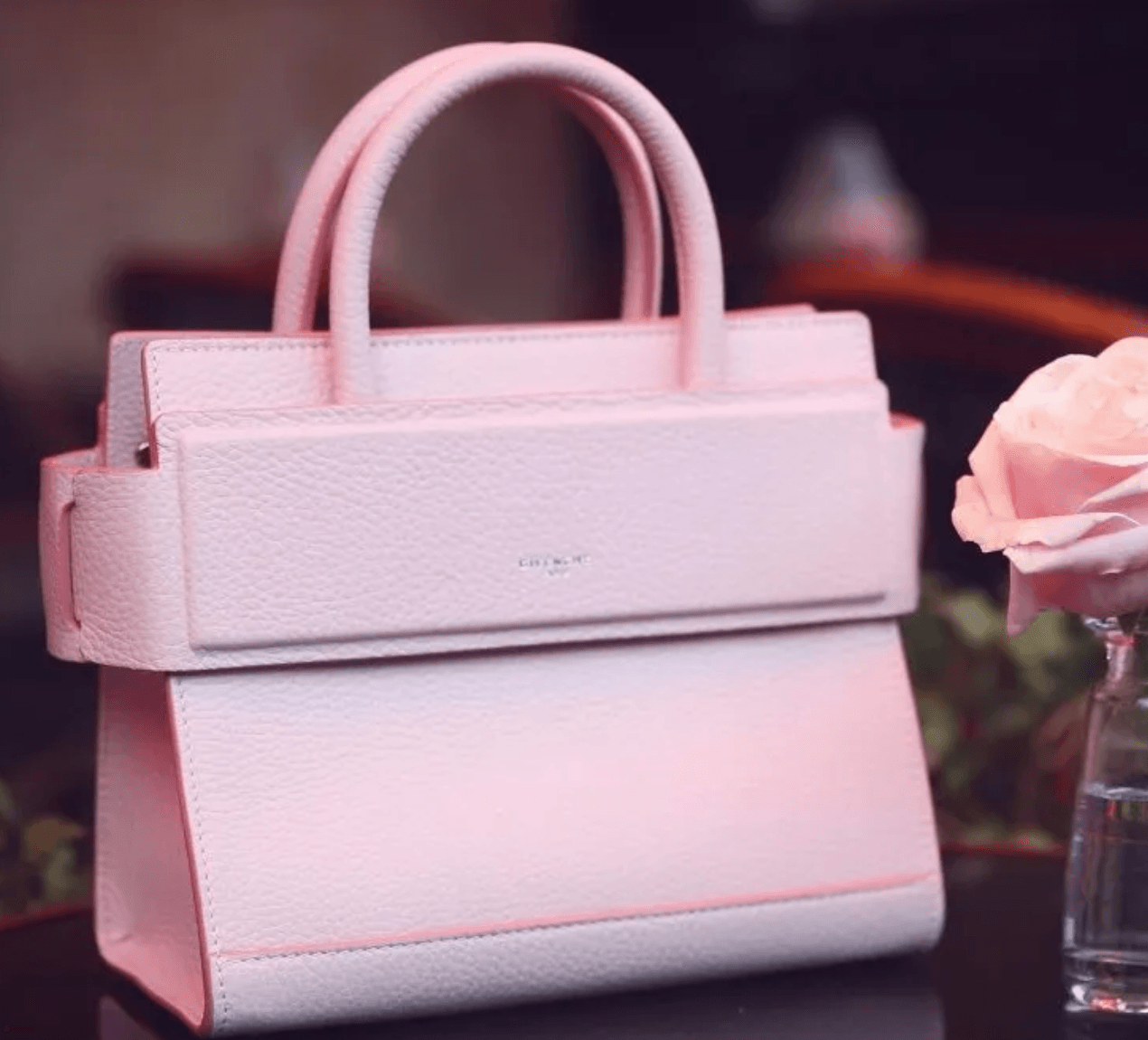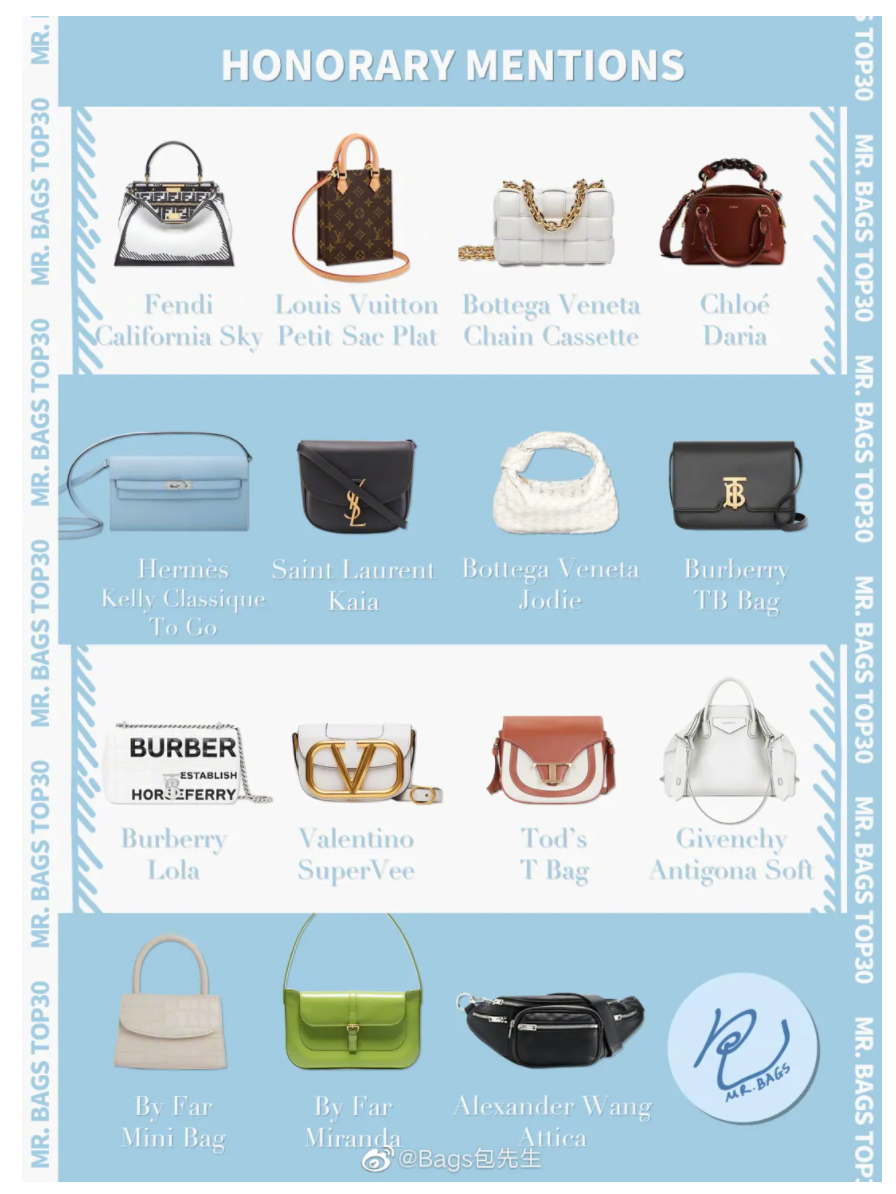"When I first launched a collaboration with Givenchy, although we had prepared so much, neither I nor Givenchy was sure about the outcome,” said Mr. Bags, recalling his first big brand collaboration in 2017.

It was 80 limited-edition pink Mini Horizon handbags made exclusively for his fans. “Luckily, the bag sold out within 12 minutes of going online, which brought a lot of hype,” he added. “Soon, hundreds were on the waiting list." Each was selling for 15,000 yuan, so net sales for all 80 bags reached 1.2 million RMB. An interview Mr. Bags did with Vice showed the buying flames, and along with his team, he counted down the glorious moments as each minute passed, and new orders came in.
But Mr. Bags’ unique business model wasn’t built overnight. The 28-year-old blogger, whose real name is Liang Tao, was a graduate student at New York’s Columbia University just a few years ago. Under the influence of his family, he began working in the financial industry at banks and accounting firms, but his heart was with fashion. So he started his blogging career from scratch by pulling pictures off of Weibo and writing in-depth articles on WeChat.
Tao created an entirely new content style in China by analyzing the prices, collection values, and styles of luxury bags while providing practical tips to millions. He’s also shown a natural business intuition by focusing on handbag categories with higher prices and longer product lifespans. His experience abroad allowed him to communicate efficiently with senior brand executives and gain a deeper understanding of their business pain points while explaining domestic consumption trends he's been able to spot.
Now, as China recovers from the COVID-19 epidemic, Mr.Bags has gotten busy again. His latest collaboration — a Mini Pocket Bag collaboration with Burberry — has once again sold out in 60 seconds and is proof of both China’s lust for revenge shopping and its love of anything Mr. Bags-related. Below, Jing Daily asked him to share the secrets for building an IT bag in the China market and more.
When did you first realize you had a passion for bags?#
When I was in high school, I loved fashion and read a lot of Vogue, and I dreamed of becoming a fashion designer. I had the passion! When I was a freshman, I discovered the world of big-name luxury bags. These brands had their own classic designs and embodied legendary stories from the past, while they constantly pushed out interesting new designs. I loved to research bags back then, and I shared my views on different bags with fans on the Internet.
What are some of your favorite bags or bag designers?#
I love Celine's bag designs during the Phoebe Philo period. They’re simple and elegant, and they don't need to show off a big logo to convey style, especially my favorite smiley bag [Celine’s luggage that looks like a smiley face]. When the first collection was launched, I recommended it to my mother. The collection became so fashionable that my mom was praised wherever she went. You could say the smiley bag is the first item I saw take off first hand. Lately, I'm very into the classic Dior Presbyopia bag under Maria Grazia Chiuri, Burberry's Big Pocket bag, and Louis Vuitton’s men's bag.
What kind of bags are considered IT bags, and how to spot IT bags early on?#
The concept of the IT Bag actually varies from person to person. I would care more about a brand's bag matrix. At the core of this matrix may be a super classic bag by this brand, but the most popular and best-selling ones are probably new classic bags. Such bags are often available for 1-3 years, yet the design would not just be trendy at that moment — it would also have the potential to become a classic. It would have to embody some sort of practicality, be a relatively cost-effective choice within the brand, and come with a catchy name.
These bags would also have to be the IT bags of this era, like the Chanel 19, Dior Book Tote, Prada Hobo, or Gucci 1955. Identifying which bag has this type of potential requires long-term training. I guess I've paid attention to bags for way too long because whenever a brand releases a bag, I only need to take one look, feel it out, and get a sense of its price, to instantly know whether it will be popular in China and if the brand should make an effort to market it here.
Why are vintage designs like the Prada hobo bag, Fendi baguette, and Dior saddle making a comeback?#
The answer is quite simple. Vintage bags have comparable advantages to classic bags, like having a similar amount of history or backstory to a Lady Dior or a Fendi Peekaboo, but prices for vintage bags are often much lower than they are for classic bags. This comeback coincides with the vintage trend, and street shots of celebrities and influencers wearing them also help persuade consumers. Plus, as they research these bags, consumers often find vintage prices to be lower than expected, making it even more likely that they’ll make the purchase.

Are the IT bags in China much different from those overseas?#
It's about the same. If you want to get a sense of which bags are most popular in China, you can check out "Mr. Bags’ Bag Ranking." The ranking is a list we’ve compiled monthly since the end of last year, where we select the hottest designer bags in China. According to our criteria, 30 percent of the ranking depends on the popularity of a bag among my fans, 30 percent depends on its popularity with global celebrities, and 30 percent depends on how much fashion bloggers and hipsters love the bag. The last 10 percent depends on how trendy a bag is. Many bag enthusiasts refer to this list to see what bags are popular before they make their next purchase.
What are the key takeaways for brands that want to build IT bags?#
Building IT bags is complicated and varies depending on different bags, but it is definitely a combination of marketing and design. Many brands face internal difficulties because they are vulnerable to predetermined mindsets and blind spots, which makes it hard to comprehensively and objectively evaluate their own products and marketing plans.
For brands, I would recommend including external professionals during the early stages of building an IT bag, whether it’s from a design perspective (the size and color choices) or a marketing perspective (what the Chinese name of the bag should be and which bloggers or celebrities should be involved in the process). Brands should try to understand the existing problems of their own products and break out of their blind spots by using a consumer’s perspective.
How has consumer behavior toward purchasing bags changed in the post-COVID-19 era?#
It's complicated. Consumer behavior has experienced periods of consumption, stagnation, and revenge spending. However, the general direction of consumption in China has changed from previous years when people shopped abroad and asked friends in foreign countries to bring back products to more direct domestic purchasing.
How have you adapted your personal brand since COVID-19? Has the way you work with brands changed?#
There hasn't been much change. Everyone has been staying at home more, so there has been more time to consume content on the internet like posts on WeChat and Little Red Book, and people have more time to watch videos. So we launched more video programs, many of which have garnered millions of views, and brands have been willing to collaborate in video form as well.
